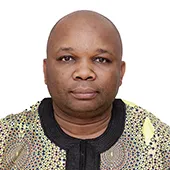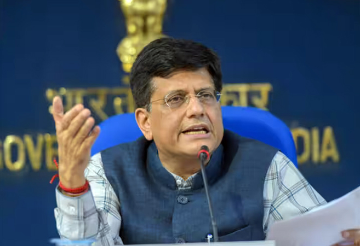
Nigeria's political capital, Abuja, has been calm for many years despite myriads of security challenges plaguing several parts of the country. However, in the past few months, several armed gangs have infiltrated the city, continuously spreading violence and terror within its environs. As tensions flare, a cloud of uncertainty looms over the city. In July, a group of bandits arrived at the Madalla-Zuba axis, along the Abuja-Kaduna highway, where they attacked and killed soldiers in a shoot-out. They attacked a community in Kwali near the Federal Government College, forcing parents to evacuate their children. About 600 inmates suspected to be terrorists escaped from the Federal Correction Center in Kuje. A terrorist group, Islamic State for West Africa Province (ISWAP), later claimed responsibility for the attack. Schools were temporarily shut amidst intelligence that armed groups were planning sporadic attacks confirming widespread speculations that the city may be under siege.
Anxieties persist as citizens rush to register for the forthcoming elections
Citizens across the country are terrified as horrifying news pours in, one after another. Commuters by road and rail are often kidnapped and forced at gunpoint to pay millions of naira in ransom to buy their freedom or face execution. Citizens do not trust the government's motives and suspect politicians may be sponsoring violence for partisan ends. The bandits have become so audacious that they have attacked military checkpoints and even threatened to kidnap the country's President Muhammadu Buhari and one of the state governors, Nasir el-Rufai. The frequency of their success continues to be a source of worry to residents at home and abroad. Recent reports indicate that over a hundred security personnel were killed in the first quarter of 2022.
Schools were temporarily shut amidst intelligence that armed groups were planning sporadic attacks confirming widespread speculations that the city may be under siege.
Criminality with growing sophistication is encouraged by poor law enforcement and bad governance
The origin of banditry in Nigeria is as contentious as the rapid spread of their operations. However, several accounts link the early appearance of armed banditry to the clashes between vigilante groups and herders in Birnin Gwari in Kaduna State and Tsafe in Zamfara. The vigilante groups were formed to support law enforcement in communities against criminality. In many communities in Northern Nigeria, Hausas and Fulanis have coexisted together for ages with many cultural and later religious similarities. However, things have changed now. By coincidence, most of the members of the vigilante groups were Hausas, while the criminals were from the itinerant Fulani ethnic group. As the vigilante groups continued to fight against these criminals, what was initially a case of law enforcement against criminality and cattle rustling, gradually began to appear as though it was a case of one ethnic group targeting another. It further transformed into a farmers-herdsmen conflict as the vigilante groups were predominantly farmers, and most criminals were herders. The Zamfara government initially supported the vigilante groups by providing them with motorcycles and other logistics to support their operations. To date, that effort has been misinterpreted in some quarters and sometimes used as a basis to justify the bandits’ attack on state facilities.
As the vigilante groups continued to fight against these criminals, what was initially a case of law enforcement against criminality and cattle rustling, gradually began to appear as though it was a case of one ethnic group targeting another.
Introduction of the Sharia Law: Some of these criminal bandits temporarily withdrew late in 1999 after the Sharia Law was introduced, which punished the stealing of cows with amputation of the arm. The implementation of Sharia, however, failed, according to a prominent Islamic scholar Sheik Abubakar Gumi. Other notable Islamic scholars like the former Emir of Kano, Mohammed Sanusi II, described the whole introduction of Sharia as a mere political discourse that politicians used to get into power. Around 2011, armed banditry resurfaced with one of the first groups led by notorious Buhari Tsoho, better known as Buhari Daji(Buhari of the bush), a Fulani man who mainly funded operations through cattle rustling. Some of those who joined him considered the armed groups to be a cultural association aimed at liberating Fulanis from the highhandedness of security agents, traditional rulers, and politicians. Membership was also initially restricted to the Fulanis. Nomadic Fulanis with little education travelled far from countries like Chad and Guinea after the civil war confirming the transnational nature of their operations.
Conflicting narratives in pursuit of often predetermined multiple agenda
In some states like Kaduna, the context appears slightly different as many vigilante group members were Christians. The clashes between the vigilante and the bandits resulted in a conflict between Christians and Muslims. Rather than support the vigilante groups, the state government reportedly paid the Fulanis to stop the killings in Southern Kaduna. The Kaduna state government traced Fulanis to Niger, Cameroon and even Senegal, providing compensation. Although often understated, the role of political actors in Zamfara and Kaduna states, in particular, and Northern Nigeria, in general, directly impacted how the conflict is perceived and what has become of it to date.
Fulani sympathisers flood Nigeria
The widespread framing of the operations of the vigilante groups as injustice against the Fulanis fueled the conflict into a full-blown crisis, especially around the Zamfara and Katsina axis. The narrative of victimhood helped mobilise sentiments to attract sympathisers and volunteers from Fulanis and bandit networks across other countries such as Mali, Senegal, Guinea, and the Sahel. This created an opportunity for extremists, ethnic bigots, and criminals to unite and have some legitimacy to operate. With the spread of terrorism in the Northeast, Boko Haram and ISWAP defectors retreated to the Northwest to continue their criminality. Earlier in the year, one attack left more than 200 persons dead in Zamfara state. Communities across the Northwest live in agony, unsure of what will happen next.
The Kaduna state government traced Fulanis to Niger, Cameroon and even Senegal, providing compensation.
Insecurity could jeopardise the 2023 poll
While some analysts think that bandits and terrorists are violent criminals using sophisticated weapons that operate differently, others insist that one is a disguised form of another. With Nigeria due for elections next year, it is very likely that the current state of insecurity may endanger the outcome of the polls. Many young people across the country might have registered to vote and are enthusiastic about their ability to participate to ensure their voices are heard. However, the terrorists have allegedly made a law to prevent citizens from participating. This could mean that the hopes of these potential voters will likely be dashed as the insecurity will deter people from coming out at the polls, creating opportunities for rigging and manipulation of results.
President Buhari will likely leave the security situation worse than he found it
Despite official claims to the contrary, the fight against banditry is far from being won. The government appears to have exhausted all their options. At the end of his tenure in 2023, President Buhari, himself a Fulani man, is expected to retire to a farm in his home state of Katsina, currently a hotspot of insecurity. Unless something is urgently done, there are speculations that the President's retirement may be marred by disquiet. Of late, parliamentarians from his party pushed firmly for his impeachment due to his failure to address insecurity. In a recently leaked memo, the Governor of Kaduna State, Mr Nasir el-Rufai, revealed how terrorists have infiltrated communities in some parts of his state and are contemplating setting up a permanent operational base in the Northwest region. Daring bandits launched successful attacks in several parts of the state with precision. Recently, violent criminals attacked a government-owned mass transit bus killing some passengers and abducting others. In July, the President’s advance convoy was ambushed and attacked by bandits on their way to the home town of Duara. The continued fragility of both the President and security agencies may imply that the security challenges in Africa’s biggest economy may last a little longer.
Many young people across the country might have registered to vote and are enthusiastic about their ability to participate to ensure their voices are heard.
Can partnership with India make any difference?
In recent years, India has been facing increased challenges of Jihadist terrorism in its major cities such as Mumbai, Bangalore, Hyderabad, and New Delhi. The Indian government has the experience and has been vocal globally in constructive engagements against terrorism. Nigeria, therefore, stands a chance to potentially benefit from partnering with India in strengthening its counter-terrorism strategies by using new tools and techniques such as artificial intelligence and technology-based intelligence gathering to generate algorithms for predictive counter-terrorism to detect and disrupt violent extremism. In addition, the Indian army remains one of the global armed forces that deploy artificial intelligence (AI) aided equipment. Reports indicate ongoing conversations about cooperation between India and Nigeria in areas such as defence training, capacity building, and research and development expertise that could boost counter-terrorism and counter-insurgency efforts.
The views expressed above belong to the author(s). ORF research and analyses now available on Telegram! Click here to access our curated content — blogs, longforms and interviews.




 PREV
PREV


